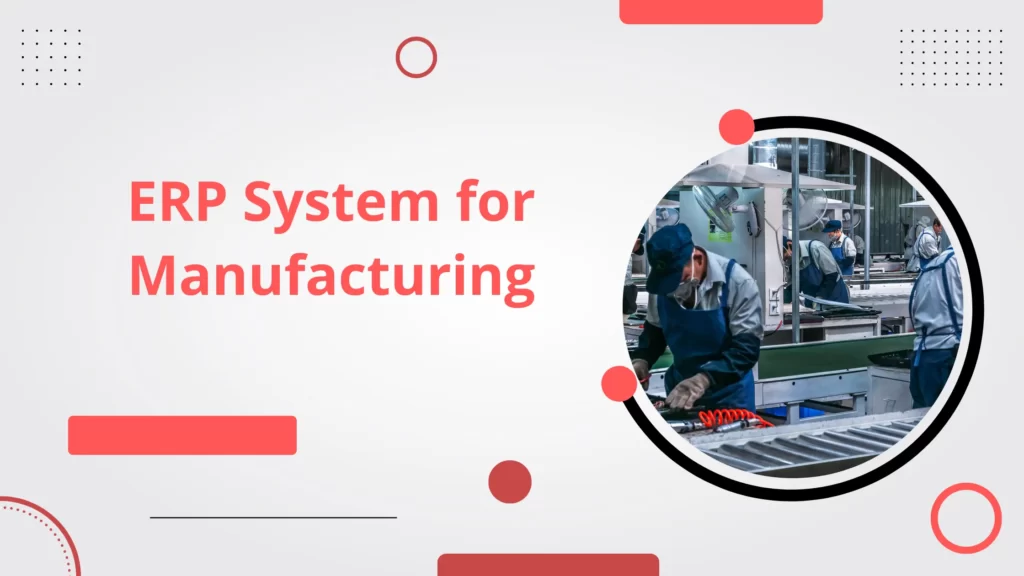In today’s fast-paced manufacturing environment, success hinges on how well you manage your operations — from supply chain to production planning, inventory to finance, and beyond. As markets grow more competitive, legacy systems and spreadsheets just can’t keep up. That’s where Enterprise Resource Planning (ERP) systems come in.
Modern ERP systems designed specifically for manufacturers are no longer a luxury — they are the foundation for scalability, efficiency, and profitability. But with hundreds of options in the market, selecting the right solution can feel overwhelming.
This comprehensive guide will help you:
- Understand how ERP systems help manufacturers
- Learn about the top ERP solutions tailored for manufacturing businesses
- Compare key features, pricing, pros and cons
- Decide which ERP is best for your operations
Let’s begin by understanding the basics.
What is ERP in Manufacturing?
An ERP (Enterprise Resource Planning) system is a centralized software platform that integrates all the core processes of a manufacturing business — including production planning, inventory control, procurement, accounting, human resources, and customer management.
When tailored for manufacturers, ERP software enables:
- Real-time data visibility across all departments
- Automation of repetitive tasks like order tracking or inventory updates
- Optimized resource allocation (machines, labor, raw materials)
- Streamlined workflows and improved production planning
- Compliance tracking for quality and regulatory requirements
Top ERP Systems for Manufacturing
Here’s a detailed breakdown of the top ERP software used by manufacturers worldwide, including new and leading solutions tailored for different business sizes and sectors.
1. Plex Smart Manufacturing Platform
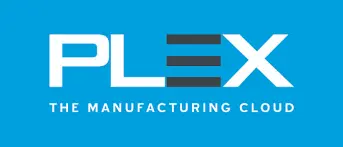
Overview:
Plex, a Rockwell Automation company, was among the first to bring cloud-native ERP to manufacturers. Designed exclusively for manufacturing firms, it supports discrete and process manufacturing environments and is strong in production traceability.
Key Features:
- Real-time production tracking
- MES (Manufacturing Execution System) integration
- Advanced quality control modules
- Machine connectivity and IoT integration
- Cloud-native with mobile access
- Inventory and supply chain planning
Pros:
- Purpose-built for manufacturers
- Robust MES functionality
- Excellent traceability and quality assurance tools
Cons:
- May be overkill for smaller businesses
- Learning curve for non-technical users
Pricing:
Custom pricing based on number of users and modules; starts around $50,000/year.
Website: https://www.plex.com
2. Acumatica Manufacturing Edition
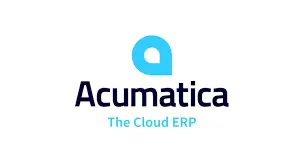
Overview:
Acumatica is a flexible and modern cloud ERP that’s ideal for small to mid-sized manufacturers. Its modular architecture supports discrete, batch, and make-to-order operations.
Key Features:
- Multi-site inventory and production management
- Bill of materials and routing
- Engineering change controls (ECC)
- Demand forecasting and planning
- Shop floor data collection (SFDC)
- Native CRM, financials, and project management
Pros:
- Cloud-based and mobile-friendly
- Scales well with business growth
- Easy integration with third-party apps
Cons:
- Limited built-in support for process manufacturing
- Pricing is usage-based, which can be complex
Pricing:
Starts from ~$1,800/month for small businesses, with flexible licensing models.
Website: https://www.acumatica.com
3. Epicor Kinetic

Overview:
Epicor is a veteran in the manufacturing ERP space. The Epicor Kinetic platform combines deep industry functionality with a modern, cloud-native user experience.
Key Features:
- End-to-end manufacturing process control
- Visual scheduling boards
- Robust costing and job tracking
- Make-to-order and engineer-to-order support
- Shop floor integration with IoT and RFID
- Product lifecycle management (PLM)
Pros:
- Excellent for complex manufacturing workflows
- Flexible deployment: cloud or on-premise
- Strong partner ecosystem
Cons:
- Can be complex to implement
- Customization may require consulting
Pricing:
License pricing starts around $4,000/user/year (cloud version). On-premise pricing varies by module.
Website: https://www.epicor.com
4. Oracle NetSuite ERP for Manufacturing
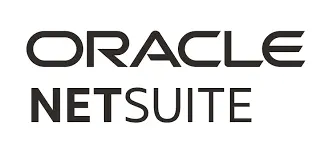
Overview:
NetSuite by Oracle is a powerful cloud ERP solution suitable for mid-sized and large manufacturing companies. It supports global operations and advanced financials along with production workflows.
Key Features:
- Full-featured financial suite
- Order management and procurement
- Supply chain and warehouse automation
- Production planning and scheduling
- Native CRM and ecommerce
- Multi-subsidiary and multi-currency support
Pros:
- Strong financial and inventory capabilities
- Ideal for manufacturers with global operations
- Cloud-native with frequent updates
Cons:
- High implementation costs
- May require third-party MES integrations
Pricing:
Starts at ~$999/month for the base license + $99/user/month; custom quotes for larger operations.
Website: https://www.netsuite.com
5. SAP S/4HANA for Manufacturing
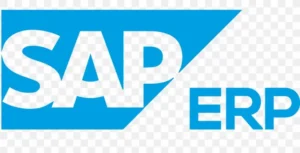
Overview:
SAP’s flagship ERP system, S/4HANA, is used by some of the largest manufacturers in the world. It combines real-time data processing with robust analytics and supply chain functionality.
Key Features:
- Real-time MRP and advanced planning
- Intelligent automation and AI insights
- MES, PLM, and SCM integration
- Advanced product costing and margin analysis
- Digital twin and IoT-enabled operations
- Global compliance and traceability
Pros:
- Unmatched depth in manufacturing processes
- Great for complex, high-volume enterprises
- Strong global support and localization
Cons:
- Expensive and complex implementation
- Long deployment cycles for new users
Pricing:
Enterprise-level pricing; typically six-figure annual licensing + implementation costs.
Website: https://www.sap.com
6. Microsoft Dynamics 365 Business Central / Finance & Operations

Overview:
Microsoft Dynamics 365 offers two primary ERP paths — Business Central for SMBs and Finance & Operations for large enterprises. Both support manufacturing modules with extensive integration.
Key Features:
- Resource and production planning
- Embedded Power BI for analytics
- IoT and AI integration for predictive maintenance
- Flexible workflow automation
- Native integration with Office 365 and Teams
- Scalable from SMB to enterprise
Pros:
- Familiar Microsoft interface
- Modular structure and flexible licensing
- Extensive global support
Cons:
- Third-party plugins often needed for MES or WMS
- Pricing can escalate with custom modules
Pricing:
Business Central: ~$70/user/month
Finance & Operations: ~$180/user/month
Website: https://dynamics.microsoft.com
7. Infor CloudSuite Industrial (Syteline)

Overview:
Infor CSI (formerly Syteline) is a cloud-based ERP designed for manufacturers that need advanced scheduling, job costing, and shop floor management.
Key Features:
- Dynamic production scheduling and capacity planning
- Advanced quality control and lot tracking
- Shop floor execution with IoT integration
- Customer and supplier portals
- Visual BOM and routing tools
Pros:
- Deep functionality for discrete manufacturing
- Strong support for ETO/MTO operations
- Modern cloud interface
Cons:
- Onboarding can take time
- Steeper learning curve for smaller teams
Pricing:
Starts at ~$1,500/user/year. Cloud hosting additional.
Website: https://www.infor.com
8. SYSPRO ERP

Overview:
SYSPRO is a manufacturing-focused ERP platform trusted by SMEs in over 60 countries. It offers deep industry capabilities, especially for food, electronics, and machinery sectors.
Key Features:
- Product traceability and serial/lot tracking
- Cost control and variance analysis
- Materials and warehouse management
- Quality assurance and compliance support
- Forecasting and demand planning
Pros:
- Tailored for mid-sized manufacturers
- Strong financial and production visibility
- Customizable with strong reporting tools
Cons:
- User interface could be more modern
- Not ideal for very small manufacturers
Pricing:
Custom quote based on users and modules; starts around $1,500/user/year.
Website: https://www.syspro.com
9. QAD Adaptive ERP

Overview:
QAD is designed for global manufacturers across automotive, life sciences, and consumer goods sectors. It offers deep vertical-specific capabilities and excellent localization features.
Key Features:
- Global supply chain and logistics planning
- Plant-level MES integration
- Cost modeling and margin optimization
- Compliance and audit trails
- Embedded analytics
Pros:
- Industry-specific functionality
- Strong international support
- Supports multiple currencies and compliance frameworks
Cons:
- Complex interface for new users
- Pricing on the higher side
Pricing:
Starts at $2,000/user/year and scales for enterprise deployments.
Website: https://www.qad.com
10. Katana ERP

Overview:
Katana is a modern, cloud-based ERP designed for small to medium-sized manufacturers, especially those using Shopify, WooCommerce, or QuickBooks.
Key Features:
- Real-time inventory control
- Visual production planning
- Sales and order management
- Raw material and finished goods tracking
- Ecommerce and accounting integrations
Pros:
- Simple, user-friendly interface
- Great for direct-to-consumer brands
- Affordable pricing
Cons:
- Lacks deep customization options
- Not ideal for large-scale or complex operations
Pricing:
Starts at $179/month for Essentials; higher tiers offer more integrations.
Website: https://www.katanamrp.com
11. MRPeasy
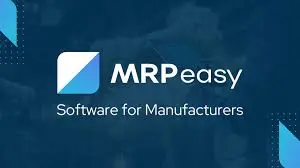
Overview:
MRPeasy is a lightweight yet powerful cloud ERP for small manufacturers with 10–200 employees. It offers an affordable entry point without compromising essential features.
Key Features:
- BOM and routing
- Procurement and vendor management
- CRM and customer portal
- Production planning and forecasting
- Barcode scanning and batch tracking
Pros:
- Easy to implement and use
- Transparent pricing
- Designed specifically for small manufacturers
Cons:
- Limited scalability
- Reporting is basic
Pricing:
Starts at $49/user/month.
Website: https://www.mrpeasy.com
ERP Systems Comparison Table
| ERP System | Best For | Cloud/On-Premise | Starting Price | Notable Feature |
|---|---|---|---|---|
| Plex | Mid-large manufacturers | Cloud | ~$50,000/year | Built-in MES & IoT integration |
| Acumatica | SMBs | Cloud | ~$1,800/month | Flexible pricing, native CRM |
| Epicor Kinetic | Complex discrete manufacturing | Hybrid | ~$4,000/user/year | Advanced job costing and scheduling |
| NetSuite | Mid-large manufacturers | Cloud | $999 base + $99/user/month | Strong financial suite |
| SAP S/4HANA | Large global manufacturers | Hybrid | Custom pricing | AI & IoT-powered automation |
| Dynamics 365 | SMB to enterprise | Cloud | ~$70 to $180/user/month | Native Microsoft ecosystem |
| Infor CSI | Engineer-to-order firms | Cloud | ~$1,500/user/year | Visual scheduling and ETO support |
| SYSPRO | Mid-sized manufacturers | Hybrid | ~$1,500/user/year | Product traceability and analytics |
| QAD ERP | Automotive/Life Sciences | Cloud | ~$2,000/user/year | Global compliance tools |
| Katana | Small D2C manufacturers | Cloud | $179/month | Ecommerce integrations |
| MRPeasy | Small manufacturers (1-50) | Cloud | $49/user/month | Affordable and easy to use |
Popular Regions
| ERP System | Popular Region |
|---|---|
| Plex ERP | USA |
| Acumatica | USA |
| Epicor Kinetic | USA |
| NetSuite ERP | Global |
| SAP S/4HANA | Europe |
| Microsoft Dynamics 365 | Global |
| Infor CloudSuite Industrial | USA |
| SYSPRO | South Africa |
| QAD Adaptive ERP | USA |
| Katana ERP | Europe |
| MRPeasy | Europe |
Why is ERP Software Used in Manufacturing?
Manufacturing is complex. It involves raw material procurement, assembly line scheduling, supplier collaboration, workforce management, and client deliveries — all while ensuring quality and profitability.
ERP software for manufacturing helps:
- Synchronize all functions from shop floor to top floor
- Reduce waste through better demand planning
- Minimize downtime with preventive maintenance and planning
- Enhance customer satisfaction through on-time deliveries
- Improve decision-making with accurate reporting
Whether you’re in discrete manufacturing (e.g., electronics, furniture) or process manufacturing (e.g., food & beverages, chemicals), ERP systems reduce chaos and introduce control.
How Do Custom ERP Solutions Help Manufacturers?
Off-the-shelf ERP solutions are built for general use — but custom ERP systems are tailored to your business model, workflow, and industry needs.
Here’s how custom ERP solutions benefit manufacturers:
Fit Like a Glove
Custom ERP systems are built to match your specific shop floor structure, quality control process, and reporting needs. There’s no need to mold your operations around software.
Scalable with Your Growth
As your factory grows or adds new production lines, a custom ERP can scale accordingly — with new modules added easily.
Competitive Edge
Tailored workflows can help you innovate faster than competitors using generic platforms.
Industry-Specific Features
Need GMP compliance for food or pharma? Need equipment calibration logs? Custom ERP can handle it without clunky add-ons.
Integration with Legacy Systems
Most manufacturers already have some in-house software for inventory, payroll, or accounting. A custom ERP can be designed to integrate seamlessly with these existing tools.
Custom ERPs require more development time and budget but offer unmatched alignment with business goals.
Benefits of ERP for Manufacturing Companies
Whether you’re a small batch producer or a global factory, ERP solutions unlock tangible advantages:
Centralized Operations
One dashboard for all departments: sales, production, inventory, HR, etc. Eliminates data silos and improves collaboration.
Inventory Optimization
Avoid stock-outs or overstock situations. Automated reordering and supplier tracking help improve cash flow and warehouse space.
Improved Production Planning
Use past data and current trends to forecast demand. Balance machine time, labor availability, and raw material flow.
Cost Control
Track raw material wastage, production delays, and labor costs. Identify bottlenecks and inefficiencies early.
Real-Time Reporting
Access dashboards for production KPIs, on-time delivery rate, quality control status, and more.
Better Maintenance Management
Schedule preventive maintenance to avoid machine breakdowns. Keep logs of equipment servicing and reduce downtime.
Regulatory Compliance
Maintain digital logs of audits, batch records, and safety checks. Helps with ISO, FDA, or other manufacturing regulations.
What is the Difference Between Standard ERP and Manufacturing ERP?
| Feature | Standard ERP | Manufacturing ERP |
|---|---|---|
| Focus | General business operations | Tailored to shop floor and production needs |
| Modules | Accounting, HR, CRM | MRP, inventory, production, QA, maintenance |
| Customization | Limited | High; built for complex manufacturing flows |
| BOM Handling | Often missing | Core feature (multi-level BOMs supported) |
| Shop Floor Integration | Rare | Common (IoT integration, machine logs) |
| Real-Time Production Tracking | Not available | Available |
| Work Order Management | Minimal | Advanced, with scheduling and tracking |
| Costing Capabilities | Basic | Detailed cost breakdowns by order or unit |
Manufacturing ERP is a specialized version of ERP that supports the unique needs of production-based businesses.
Selecting the Best Manufacturing ERP for Your Business
Before choosing an ERP solution, ask yourself:
- What is our production model (discrete, batch, or continuous)?
- Do we need real-time shop floor tracking?
- What integrations (CRM, accounting, MES) are needed?
- Do we prefer cloud or on-premise?
- What’s our budget — both for license and customization?
Involve your plant manager, finance head, and IT team in the ERP selection process. An ERP that suits accounting may not meet your floor manager’s needs. Align internal goals before talking to vendors.
Core Features of the Best Manufacturing ERP Systems
Before diving into specific ERP platforms, let’s examine the key features you should look for in a manufacturing ERP system:
1. Bill of Materials (BOM) Management
Supports multi-level BOMs, sub-assemblies, and production recipes. Crucial for controlling raw materials and finished goods.
2. Shop Floor Control
Provides real-time visibility into machine status, employee tasks, and production progress. Integrates with IoT devices and sensors.
3. Material Requirements Planning (MRP)
Forecasts material needs based on demand and current inventory levels. Automates procurement and reorder workflows.
4. Inventory & Warehouse Management
Tracks inventory across multiple warehouses, including lot numbers, serial tracking, shelf life, and real-time stock movement.
5. Work Order & Job Scheduling
Helps allocate machines, materials, and labor efficiently for each job. Supports rescheduling based on priority or machine downtime.
6. Quality Management
Allows real-time quality checks, defect logging, and non-conformance reporting. Often tied to regulatory compliance (e.g., ISO, FDA).
7. Financial Management
Includes accounting, invoicing, budgeting, and cost tracking. Integrates with procurement and payroll.
8. CRM and Sales Integration
Captures customer information, sales orders, quotes, and shipping status. Useful for order fulfillment and after-sales service.
9. Reporting & Analytics
Generates real-time dashboards and customizable reports for key stakeholders. Helps spot production issues early.
10. Regulatory Compliance Tools
Supports industry-specific regulations like cGMP, REACH, RoHS, etc., with audit trails and validation logs.
Why Is ERP Software Used in Manufacturing?
ERP software is used in manufacturing to centralize operations, automate workflows, and gain real-time visibility into the supply chain, production floor, and finances. It breaks data silos between departments, which improves:
- Production efficiency
- Inventory accuracy
- Customer satisfaction
- Regulatory compliance
- Decision-making through analytics
How Does Custom ERP Help Manufacturers?
Custom ERP solutions allow manufacturers to tailor workflows, screens, and data capture specifically for their processes. Benefits of custom ERP include:
- Integration with proprietary machinery or sensors
- Custom dashboards and KPIs
- Industry-specific workflows (e.g., FDA compliance for pharma)
- Greater control over future enhancements
- Unique competitive advantages through automation
While more expensive upfront, custom ERP delivers higher ROI for businesses with unique requirements.
Benefits of ERP for Manufacturing Companies
- Reduced manual errors through automation
- Better inventory management with real-time visibility
- Accurate demand forecasting using historical and live data
- Improved customer satisfaction with timely deliveries
- Real-time reporting for managers and shop floor supervisors
- Lower operating costs through optimized production
10 Most Important Manufacturing ERP FAQs
1. What does ERP stand for in manufacturing?
Answer: ERP stands for Enterprise Resource Planning. It refers to a unified software platform that helps manufacturers manage operations like procurement, production, inventory, finance, and HR.
2. Do small manufacturers need ERP software?
Answer: Yes. Even small manufacturers benefit from ERP by streamlining manual tasks, reducing errors, and making data-driven decisions to improve efficiency and profitability.
3. How long does ERP implementation take?
Answer: Implementation typically takes 3 to 12 months, depending on company size, complexity, and customization needs.
4. What’s the difference between MRP and ERP?
Answer: MRP (Material Requirements Planning) is a subset of ERP focused on inventory and production planning. ERP includes MRP plus finance, CRM, HR, and other modules.
5. Is cloud ERP better than on-premise for manufacturers?
Answer: Cloud ERP offers easier updates, lower upfront costs, and remote access. On-premise may be preferred by companies needing full control or operating in low-connectivity areas.
6. Can ERP integrate with manufacturing machines?
Answer: Yes, many modern ERP platforms support IoT and MES integration, enabling direct communication with shop floor machinery for real-time tracking.
7. What’s the cost of ERP for manufacturing?
Answer: ERP costs vary widely — from $50/user/month for SMBs to six-figure annual licenses for enterprise platforms with advanced features.
8. What industries benefit most from manufacturing ERP?
Answer: Industries like automotive, electronics, aerospace, food & beverage, pharmaceuticals, and metal fabrication benefit significantly from ERP systems.
9. Can ERP improve product quality?
Answer: Absolutely. ERP systems enforce quality checks, record defects, and manage compliance workflows, helping manufacturers maintain consistent quality standards.
10. What happens if I outgrow my current ERP?
Answer: Many ERP systems offer modular upgrades or migration paths to more robust versions. It’s critical to choose a scalable solution to support growth.
Final Thoughts: Choosing the Right ERP for Manufacturing
Choosing the right ERP system can transform a manufacturing business by aligning all departments under a single, intelligent platform. Whether you’re a startup running on spreadsheets or an enterprise managing global plants, ERP brings the visibility and automation needed for competitive advantage.
Take the time to evaluate demos, consult industry experts, and choose a system that meets your current needs while supporting long-term growth.
